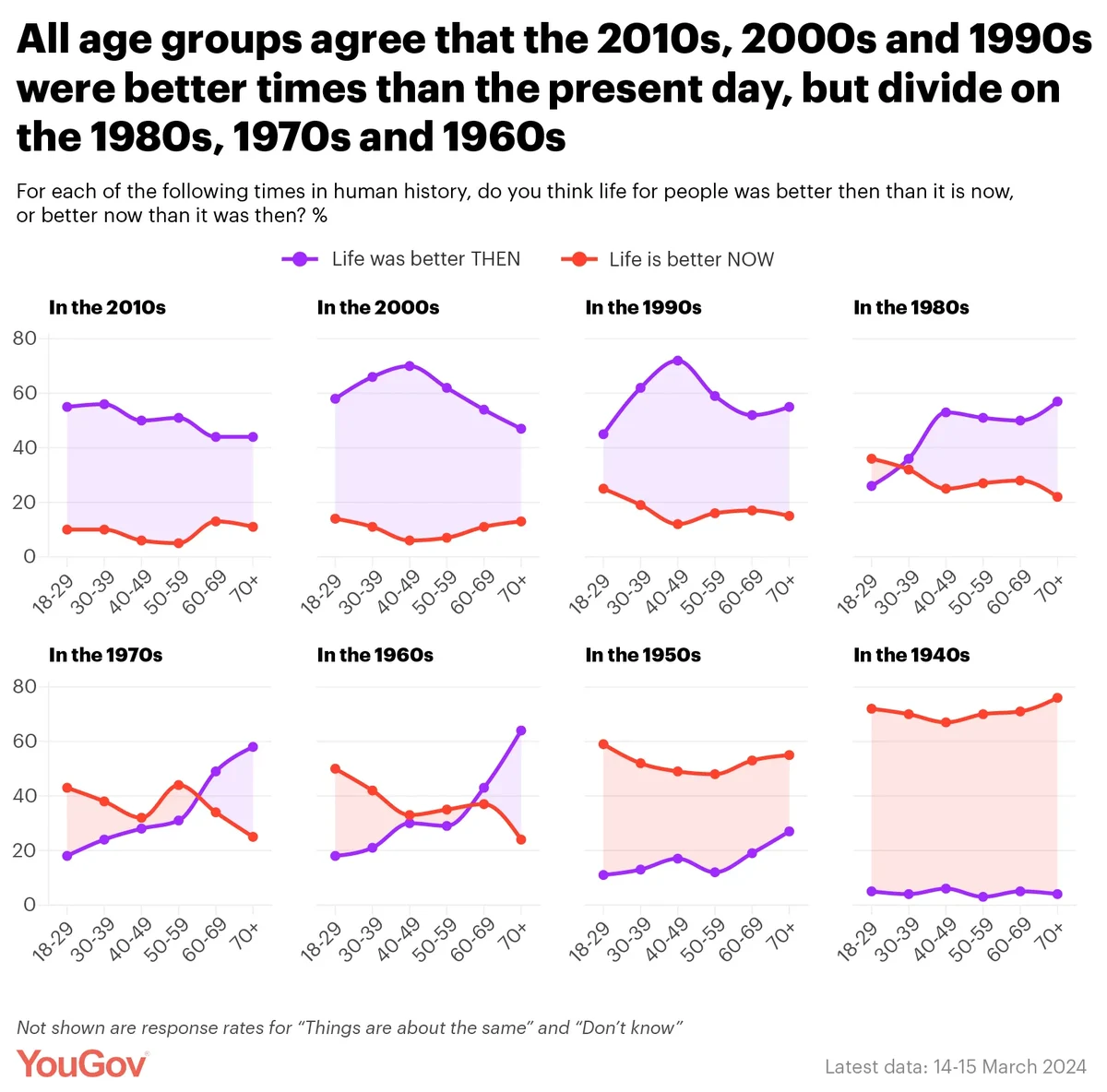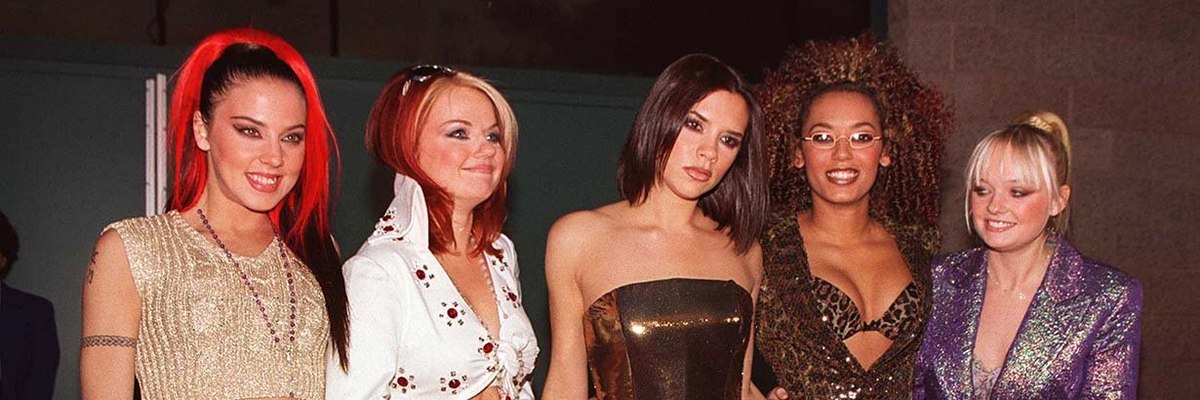Nostalgia for past decades has increased significantly in the last five years
Recent years have seen a global pandemic, a cost of living crisis, and what could in retrospect turn out to have been the beginning of a new major global conflict. That being the case, is it any wonder that new YouGov data shows that the public are increasingly likely to look fondly towards the past?
Britons tend to think that several recent decades were better than the current era, particularly the 1990s and 2000s, of which 57% and 60% respectively say life was better. Another 51% say the same for the 2010s, and a plurality also say so of the 1980s (45%, with 29% taking the opposite view).
Britons are closely split on whether or not life was better in the 1960s and 1970s – about a third fall on either side of the argument for each decade.
By the time you get to the 1950s, most people think life was worse (53%), and time periods before then are even more negatively perceived.
Unsurprisingly, age plays a considerable role in attitudes towards the past. While all age groups tend to think the 2010s, 2000s and 1990s were better than the current date, generational division begins to occur for the 1980s and continues for the 1970s and 1960s. This transition is completed by the time you get to the 1950s, which all ages tend to say was worse than the current day.

These latest findings represent a significant reassessment of the nineties and noughties since the previous time we asked this poll in 2019. There has been a twenty-five percentage point increase in the number of people who think the 2000s were better than the time the poll was conducted, and a sixteen point increase when it comes to the 1990s.
The growth in the number of people seeing the nineties and noughties as superior is present across all age groups. This trend is also present among the over-40s for the 1980s, and among the over-60s for the 1970s.
The results also show a gender divide, with men being more likely than women to say things are better now than they were in the past. This holds with other research findings, for instance that given the choice between taking a time machine to the past or future, women are more likely to opt for the past.
Asked to nominate the single best decade, Britons split between the 2000s and the 1990s, on 19% each. The 1980s come third on 13% and the 2010s fourth on 11%. Only 9% say the current time is best.
There is a direct correlation between people’s favoured decade and the time of their own youth. The results also show that Labour voters are more likely than Conservatives to pick the 2000s, while Tories have a stronger preference for the 1980s. This holds even when accounting for the different average ages of each group.
Most Britons think life will be worse in 2050
Given that Britons are looking so fondly to the past right now, it may be no surprise that they are pessimistic about the future. Fully 56% think that life for people in 2050 will be worse than it is now; only 17% think it will be better, while 12% think it will be about the same.
Younger people and men are somewhat more likely to think the future will be better (about 10pts higher than their older and female counterparts), but this is still very much a minority opinion.
Britons look back most fondly on their twenties
When asked to think about their own lives, Britons are most likely to say that the best years of their life so far have been their twenties. Three in ten Britons aged 20 and older (30%) nominate that decade as their best, a figure which is largely consistent however old they are.
It is also the most common response for each age group, except among those in their twenties themselves, who are split three ways over whether their childhood (30%), teenage years (30%) or twenties (28%) have been best so far.
Britons think their best years are behind them by the time they reach their forties
While people say their twenties have been their best years so far, are they holding out hope that their best years are to come?
The answer is largely no. While 60% of Britons in their twenties and 51% of those in their thirties think it is likely their best days are yet to come, this drops to 33% of those in their 40s, and continues to decline from there.
Overall, 49% of Britons believe their best days are probably behind them, while 33% think they are still to arrive.
Photo: Getty











